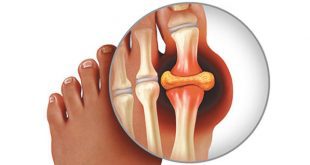Advanced Hearing Solutions Provides an Innovative Cognitive Test to Measure Results
By Dr. Noël Crosby, Au.D.


Studies that measured hearing, found an increased risk of dementia per 10 dB of the worsening of a hearing loss. One further possibility is that hearing impairment results in increased compensatory mental effort to perform cognitive tasks such as remembering sequences of spoken digits. This compensatory effort may use up limited cognitive resources resulting in an apparent decrease in cognition (the cognitive load effect). It takes the average person 7 – 10 years from when they begin experiencing hearing loss to seeking treatment. That is 7 -10 years of a brain working overtime, no wonder hearing loss is linked to cognitive decline.
The great news is the increasing evidence that treatment in the form of hearing aids will improve quality of life, increase social engagement and also more evidence that hearing aid use may have a positive impact on the performance of cognitive measures. Wearing a hearing aid might not prevent dementia, but if the onset of functional impairment could even be delayed by only a few years for some people, this would be a significant achievement.
If treating hearing loss can improve cognition or at the very least stabilize the rate of cognitive decline, why would anyone with any type of hearing loss not seek treatment. Now that the world knows that hearing loss can contribute to decreased cognition, it follows that in my office I now use Cognivue. this is an FDA cleared computerized test that can screen for early signs of Alzheimer’s and other cognitive impairments. I am finding that information provided by the Cognivue screening device provides me with valuable information that allows me to better treat hearing loss.
Cognivue has many benefits including:
1. Quick and painless – Cognivue can be done in my office in 15 minutes and gives you the results almost immediately. If you need further testing, I can refer you to a professional whose specialty is cognitive health.
2. Testing different aspects of cognition – Cognivue tests various parts of cognition to give you an idea of exactly what effects are happening and what are the best ways to counteract them. Cognivue tests Motor Control, Visual Processing, Perception, and Memory.
3. Simple score – Once the test is completed, you get an easy to understand score with cutoffs to help you understand your level of risk and cognitive impairment.
Please contact us at 941-474-8393 or info@advancedhearingsolutions.net for more information about Cognivue or to schedule your screening.
Call the office today to schedule your cognivue screening as part of your hearing exam.
941-474-8393
About Advanced Hearing Solutions — Using the latest and most sophisticated technology, we determine if you have hearing loss–and, if you do, we determine the degree and type of hearing loss. If your hearing loss requires medical or surgical intervention, we can refer you to a physician (otologist or neurologist) for appropriate treatment. If your type of hearing loss can best be treated with the use of hearing aids and/or other assistive listening devices (which is true in the great majority of cases), we can select any of a wide range of hearing devices and custom fit them to your ear, programmed to augment your hearing at those frequency levels where your hearing loss is greatest.
 Southwest Florida's Health and Wellness Magazine Health and Wellness Articles
Southwest Florida's Health and Wellness Magazine Health and Wellness Articles

